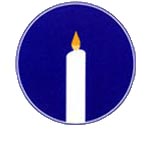Senate President Say Chhum signed controversial amendments to the Law on Political Parties on Friday, effectively preventing former CNRP President Sam Rainsy from supporting his former party from overseas.
The opposition braced for impact from the legislation, with both the Sam Rainsy Party (SRP)—now rebranded as the Candlelight Party—and Kem Sokha’s Human Rights Party (HRP) saying they would continue to exist as organizational structures in the event the CNRP, which the two parties formed in 2012, was dissolved before next year’s national election.

Min Sean, a spokesman for the Constitutional Council, said that Mr. Chhum had signed the law into effect in his capacity as acting head of state, as King Norodom Sihamoni had departed last week for a medical checkup in Beijing.
“This law is considered urgent, so it will take effect starting from the day it was signed,” Mr. Sean said.
The king’s absence did not stop him from signing a separate royal decree on Saturday anointing Defense Minister Tea Banh with a new honorific. In a letter, the opposition urged the king not to sign the party law changes days before he left, and his departure marks the second set of amendments to the law this year that the king has passed to Mr. Chhum for signature.
CPP spokesman Sok Eysan said the king transferred head of state powers on a case-by-case basis and said he did not know why the king signed the samdech decree but not the draft law.
“Ask the king to find out about that,” he said.
Parties will have 90 days to comply with the change to the Law on Political Parties, which empowers courts to dissolve parties that conspire with convicted criminals or feature convicts in their promotions.
The changes also prevent parties from featuring individuals in their name or their image in their party logo.
When he proposed the changes last month, Prime Minister Hun Sen made it clear they were directed at Mr. Rainsy, who faces a raft of charges observers say are politically motivated.
A group of 19 local civil society members, including rights group Adhoc and the Committee for Free and Fair Elections, or Comfrel, slammed the law as unconstitutional in a statement on Friday, saying that “the proposed amendment would subvert Cambodian democracy, and violate multiple provisions of the Constitution of the Kingdom of Cambodia…as well as Cambodia’s binding international human rights obligations.”
The CNRP is in the process of replacing signs featuring Mr. Rainsy and Mr. Sokha, the party president, with ones featuring its rising son logo.
SRP acting president Teav Vannol, meanwhile, said the party’s permanent committee had chosen its new name because the SRP logo already featured a candle, making it “easy for people to understand and remember.”
Though the SRP and HRP merged five years ago, the party structure has been maintained to preserve the former’s Senate seats. Though current SRP senators will run as CNRP candidates in January’s Senate elections, the SRP will nonetheless continue to exist as a backup plan in case the CNRP runs into “trouble,” according to Mr. Vannol.
“You can say it is a reserve party, but the important thing is that is the desire of the party’s permanent committee to keep in Cambodia’s history that there was a democratic party, that was here to serve democracy in Cambodia,” he said.
Ou Chanrath, a former secretary-general in the HRP and current CNRP lawmaker, said that the HRP, now led by Son Soubert, would also continue its life even as its last elected officers gave up their seat or joined the CNRP for last month’s commune elections.
“It’s a strategy,” he said, echoing Mr. Vannol’s comments.
For his part, Mr. Rainsy said he would continue to test the limits of the law by posting himself in photos with CPP leaders as well as the late King Norodom Sihanouk and monks.
“Where is the CPP-controlled court going to draw the line?” he wrote in an email. “My widely displayed photo with Kem Sokha, which is being removed from public places because it is clearly banned, was taken before the law comes into force. Therefore any photo of me, even those taken many years ago, could be banned.”
(Additional reporting by Ben Paviour)



